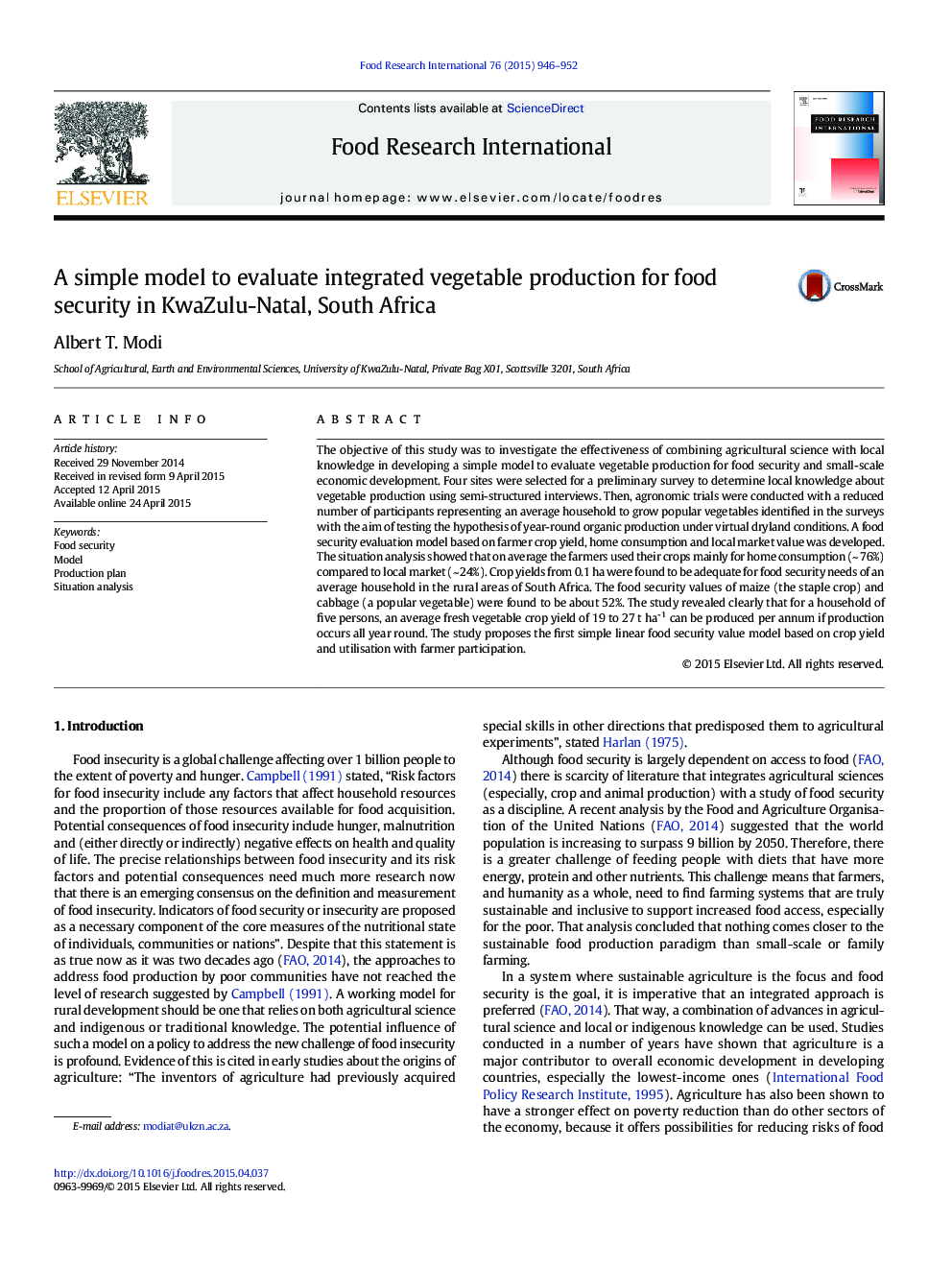| Article ID | Journal | Published Year | Pages | File Type |
|---|---|---|---|---|
| 4561275 | Food Research International | 2015 | 7 Pages |
•Situation analysis avoids a top-down approach.•Agronomic trials were used to test the production plan.•Participatory research led to a simple food security model.
The objective of this study was to investigate the effectiveness of combining agricultural science with local knowledge in developing a simple model to evaluate vegetable production for food security and small-scale economic development. Four sites were selected for a preliminary survey to determine local knowledge about vegetable production using semi-structured interviews. Then, agronomic trials were conducted with a reduced number of participants representing an average household to grow popular vegetables identified in the surveys with the aim of testing the hypothesis of year-round organic production under virtual dryland conditions. A food security evaluation model based on farmer crop yield, home consumption and local market value was developed. The situation analysis showed that on average the farmers used their crops mainly for home consumption (~ 76%) compared to local market (~ 24%). Crop yields from 0.1 ha were found to be adequate for food security needs of an average household in the rural areas of South Africa. The food security values of maize (the staple crop) and cabbage (a popular vegetable) were found to be about 52%. The study revealed clearly that for a household of five persons, an average fresh vegetable crop yield of 19 to 27 t ha- 1 can be produced per annum if production occurs all year round. The study proposes the first simple linear food security value model based on crop yield and utilisation with farmer participation.
